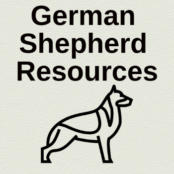The world of canine nutrition is vast and varied, with new trends and recommendations emerging regularly. Recently, one trend that has captured the attention of many dog owners, particularly those with specific breed concerns, is the adoption of a grain-free diet. Described as a potential solution for digestive issues, skin conditions, and even behavioral problems, grain-free food has spiked in popularity. German Shepherd owners, in particular, are often faced with the question: is a grain-free diet conducive to the well-being of my noble companion? This comprehensive guide will explore the ins and outs of grain-free diets for German Shepherds, shedding light on the debate and helping you make an informed decision for your four-legged friend.
Table of Contents
Understanding the Grain-Free Diet Revolution
In the last decade, grain-free diets have become a significant player in the pet food industry, fueled by the perception that dogs are better off without grains. The term ‘grain-free’ in dog food usually means the exclusion of corn, wheat, soy, rice, barely, and other grains. This is often in favor of alternative sources of carbohydrate such as fruits, vegetables, and pulses.
The Origins and Intentions Behind Grain-Free Dog Food
The idea behind grain-free diets is primarily influenced by the belief that grains are not natural for dogs to digest. Advocates point to the historical carnivorous habits of canines and argue that today’s domesticated dogs still thrive when offered a diet that resembles their ancestors’ eating patterns. This notion has translated into a booming industry that offers a spectrum of grain-free options for concerned pet parents.
The Pros and Cons of Going Grain-Free
Grain-free diets are often highlighted for being associated with a reduction in allergic reactions and an improvement in coat and skin conditions. Proponents also claim that grain-free diets can lead to better weight management and reduced instances of diabetes in dogs. However, there is also growing concern over the long-term implication of grain-free diets, particularly in relation to heart health and the risk of dilated cardiomyopathy (DCM).
Tailoring to German Shepherd Health
German Shepherds are an iconic breed known for their versatility, intelligence, and loyalty. However, they are also prone to certain health issues that require careful dietary considerations.
Unique Nutritional Needs of the Breed
German Shepherds are known for their sensitive digestive systems and can be prone to allergies and food sensitivities. Because of this, what they eat can significantly impact their health and well-being. Additionally, the breed’s incredible athleticism and energy expenditure necessitate a diet rich in proteins and healthy fats to support muscle development and sustain high activity levels.
The Role of Grains in German Shepherd Health
Grains have been a staple in dog food for many decades, and they provide a vital source of vitamins, minerals, and fiber. The right grains, when properly processed and balanced with other nutrients, can be part of a healthy canine diet. For German Shepherds, grains can serve as an excellent source of energy and nutritional support, especially for the high-energy demands of their active lifestyles.
Debunking Myths and Validating Realities
There is tremendous amount of information, and sometimes misinformation, surrounding grain-free diets. It’s vital to decipher the truth from the myths to make informed decisions about your dog’s health.
Separating Fact from Fiction in Grain-Free Feeding
One of the most common misconceptions is that all grains are harmful to dogs, which is simply not true. Whole grains, like quinoa and oats, can offer a range of health benefits, including improved digestion and a reduction in cholesterol. It’s also crucial to understand that a grain-free label does not automatically equate to a healthy or balanced diet. Many grain-free options might lack the necessary nutrients a dog needs, especially one as active as a German Shepherd.
Understanding DCM and the Grain-Free Connection
In recent years, concerns have been raised about a potential link between grain-free diets and DCM, a heart condition that affects the heart muscle. While the exact cause of DCM is not fully known, the FDA has raised warnings, linking certain diets, often those that are grain-free and high in legumes and/or potatoes, to an increased risk of DCM. It is important to note that correlation does not equal causation, but these concerns highlight the need for further research and the criticality of a well-balanced diet in dog nutrition.
Making the Informed Choice for Your German Shepherd
Choosing the right diet for your German Shepherd is a significant decision that can impact their quality of life. Here are considerations to guide you in this choice.
Assessing the Individual Needs of Your German Shepherd
Every dog is unique, and individual health factors should be the primary consideration when selecting a diet. If your German Shepherd has allergies or sensitive digestion, a grain-free diet might be beneficial. However, it’s essential to remember that grain allergies are relatively uncommon, and a balanced diet with proper grain content may serve your dog just as well.
Professional Consultation and Regular Monitoring
Before changing your dog’s diet, it is critical to consult with a veterinarian, particularly one with experience in canine nutrition. They can guide you on the best approach to feeding your German Shepherd while taking into account any specific health concerns or nutritional deficiencies. Regular check-ups and monitoring of your dog’s health are also crucial, especially after any significant dietary changes.
Alternative Dietary Approaches
While the debate around grain-free diets continues, there are several approaches that can provide a well-rounded diet for your German Shepherd.
Balanced Diets Incorporating Grains
High-quality commercial dog food that includes grains can provide your German Shepherd with the required nutrition. Look for brands that use whole grains as a source of carbohydrates and ensure the balance with proteins, fats, vitamins, and minerals..
The Importance of Variety and Moderation
A varied diet is essential for dogs as it is for humans. Mixing different types of food, including some whole grains, can offer a spectrum of nutrients. However, avoid overfeeding or over-supplementation, which can lead to obesity and nutrient imbalances.
What I am Doing with Japer my GSD
Jasper is 2 now. I considered going to a raw food diet but decided on a high quality kibble with added nutrients along with raw. I source my raw from a local farm that pasture raises its poultry. It consist of chicken necks, hearts and livers and raw bones to chewy such as femurs cut into chunks. I admit, he eats better than I do!
I use 4 Leaf Rover supplements on the kibble. I use less than the recommended as they are pricey but the quality seems good. I add them to my small Papillons food as well. They free feed from the same bowl. I will say free feeding is likely a bad idea as my male who is fixed is over-weight. Jasper, if I allowed free-feeding, would definitely eat more than I give him! I am mindful of German Shepherd joint issues, so limit him to the recommended amount of food per day. This is 3 cups most days and occasionally 3.5 cups. This keeps him at a good weight and very motivated in training as his training treats are part of his daily food allotment.
I use high quality all meat treats with much of it being raw I have freeze dried. He gets about a cup of raw per day either alone as a meal or with kibble. This seems to work for him and his constant itching has significantly decreased. I do not believe kibble alone gives a dog adequate nutrition but if doing raw only you have to educate yourself very well so you do not harm your dogs health.
It may be true wolves in the wild eat only raw but they also only live 5 years on average. That’s for a lot of reasons other than diet, but I’m not convinced raw only done poorly is any better than kibble.
Conclusion and Community Engagement
The grain-free diet trend has brought both benefits and caution to the forefront of dog nutrition. As a German Shepherd owner, your role is vital in ensuring your dog’s diet supports their health needs. Engage with the community, share your experiences, and continue to seek reliable information to make informed choices for your beloved pet. Remember that, as with any diet, balance is key. The ultimate goal is a diet that aligns with your German Shepherd’s health requirements and contributes to a long, active, and healthy life.

